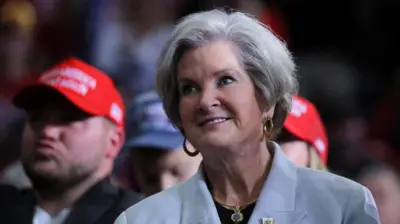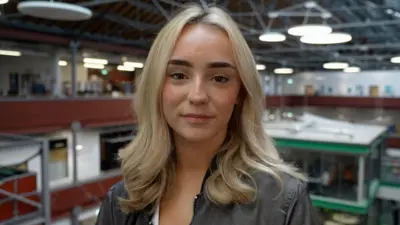We've updated our Privacy and Cookies Policy
We've made some important changes to our Privacy and Cookies Policy and we want you to know what this means for you and your data.
Sean Quinn anger at Anglo Irish Bank move
Former Fermanagh billionaire Sean Quinn, who was stripped of control of his business empire last week, has said he could have turned his fortunes around, given time.
The Quinn Group and family owe more than 4bn euros (ÂŁ3.5bn) to the banks.
Last week, in a restructuring deal, the family lost any role in the management of the group.
In a statement on Monday, Mr Quinn said he had made mistakes, but these should not result in "a life sentence".
He said he had spent a year developing a business plan that would have allowed the group to pay its debts.
Of the money owed, almost 3bn euros (ÂŁ2.68bn) is due to so-called toxic bank Anglo Irish, which because it is nationalised, means it is owed to the Irish taxpayer.
Last week, Anglo Irish Bank announced a restructuring deal which stripped the Quinn family of any control of the business empire they had created.
In his first public statement, Mr Quinn said the move had been the "biggest upset" of his business career.
He conceded that he had made mistakes sinking millions into Irish bank shares, but he said such mistakes should not result in a life sentence.
It was announced on Thursday that Mr Quinn would no longer have any role in the management of his company.
The bank said that Kieran Wallace of KPMG would take control of the Quinn family's shares.
The businessman and his family owe Anglo Irish Bank 2.88bn euros (ÂŁ2.52bn). Other lenders to the Quinn Group are owed almost 1.3bn euros (ÂŁ1.13bn).
In a statement, Mr Quinn said he and his colleagues had spent the past year developing a proposal which would have allowed them to "discharge fully all the family's obligations to the Irish taxpayer".
He said that during this time he had consulted with some of the most respected and experienced individuals in Irish and UK business.
"I am utterly convinced that our proposal could achieve the retention and increase of skilled employment in the group," Mr Quinn said.
The businessman blamed the banks for the company's financial downfall.
"Our mistake was to place an over reliance on the Irish banking system and the many predictions for continued sustained growth in the Irish economy from some of the country's leading financial services experts," he said.
"Ireland needs enterprise and entrepreneurs more than ever at this time but mistakes in business should not result in a life sentence."
The Fermanagh man thanked customers and staff for their "huge contribution" to the company's success.
"There is no workforce anywhere that has the talent, commitment, loyalty and determination of the Quinn workforce," he said.
"They have created and sustained skilled employment in regions where this was not seen as possible before."
Mr Quinn said the extensive media coverage since last week's announcement had resulted in some "inaccurate and false" reporting.
A five-year restructuring plan has been agreed between Anglo and the Quinn Group's lenders, aimed at stabilising the businesses, which are described as "fundamentally good and profitable".
Repayment of debt
Anglo Irish Bank chief executive Mike Aynsley said the bank was owed an "enormous" amount of money by the Quinns, which they were not in a position to repay.
He said the bank had taken an approach which protected the businesses and paved the way for maximising the repayment of debt to the Irish tax payer over time.
The company also revealed that Liberty Mutual and Anglo Irish Bank was the preferred bidder for the company.
Liberty Mutual would provide the management and insurance expertise to Quinn Insurance.
Anglo Irish Bank will retain a minority share holding in the new firm but will have no dealings in the day-to-day management of the new company.
It is hoped a deal will be finalised within the next four to six weeks.
All 1,570 jobs in the Republic and in Northern Ireland will transfer to the joint venture. Cavan will remain the head office of the business.
As part of the plan, the Navan office is to close and the 100 staff will relocate to either Blanchardstown or Cavan.
Thirty staff employed in Manchester are to be offered redundancy.
Top Stories
More to explore
Most read
Content is not available








